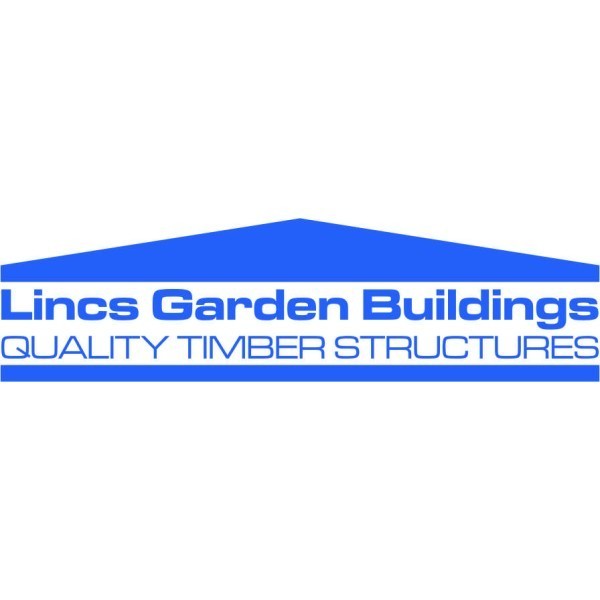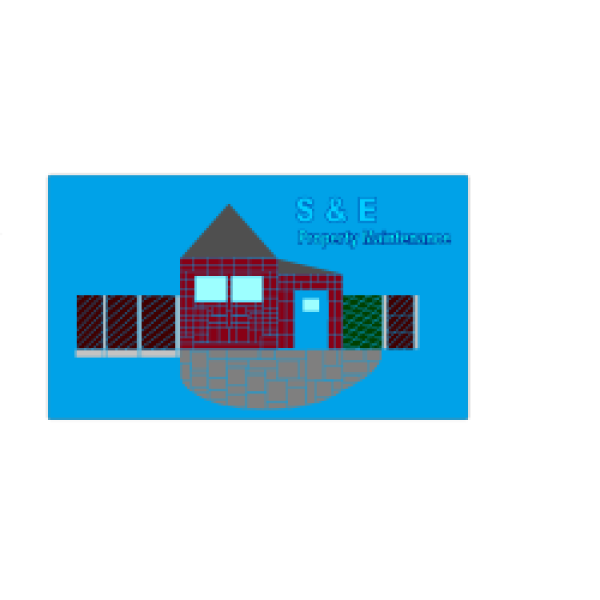Garden Fencing in Gainsborough
Welcome to Lincs Garden Buildings And Fencing, your premier choice for top-notch garden solutions in Hubbert's Bridge and across the beau... read more »
Sanderson Building & Landscaping: Your Trusted Tradespeople in Littleworth, South Yorkshire
Welcome to Sanderson... read more »
Welcome to Knots Carpentry & Joinery Limited, your premier choice for carpentry and joinery serv... read more »
Welcome to S & E Property Services, your trusted partner for comprehensive property maintenan... read more »
Welcome to GHS Landscapes, your premier choice for ex... read more »
T... read more »
Lorton Services - Fencing and Garden Worksread more »
Able Property Services Lincoln is yo... read more »
Welcome to Proline Fencing, your trusted partner for... read more »
Welcome to Home View Property Maintenance, your go-to... read more »
Welcome to Fen Developments Ltd, your trusted partner... read more »
Welcome to Skegness Fencing, your trusted partner for... read more »
CS Tree & Landscaping: Your Trusted Landscapi... read more »
Welcome to O'Briens Landscape Gardening, your trusted... read more »
Welcome to S&H Planters And Fencing, your trusted par... read more »
S Smith Landscapes And Tree Care is... read more »
Welcome to Field Tree and Garden Care, your trusted p... read more »
Sherwood Fencing LTD: Premier Garden Fencing... read more »
AB Fencing & Landscapes LTD is your... read more »
Welcome to AJF Groundworks Limited, your trusted part... read more »
Search Garden Fencing in places nearby
Introduction to Garden Fencing in Gainsborough
Garden fencing in Gainsborough is more than just a way to mark boundaries; it's an essential part of creating a beautiful and secure outdoor space. Whether you're looking to keep pets safe, enhance privacy, or add a decorative touch to your garden, the right fencing can make all the difference. In this article, we'll explore the various aspects of garden fencing in Gainsborough, from materials and styles to installation tips and maintenance advice.
The Importance of Garden Fencing
Garden fencing serves multiple purposes, making it a vital component of any outdoor space. It provides security by keeping unwanted visitors out and ensuring that children and pets stay within the safe confines of your garden. Additionally, fencing can offer privacy, allowing you to enjoy your garden without prying eyes. Furthermore, a well-chosen fence can enhance the aesthetic appeal of your garden, complementing the landscape and adding value to your property.
Security and Safety
One of the primary reasons homeowners invest in garden fencing is to ensure security and safety. A sturdy fence can deter intruders and prevent animals from entering your garden. For families with young children or pets, fencing provides a safe environment where they can play without the risk of wandering off.
Privacy Enhancement
Privacy is a significant concern for many homeowners, and garden fencing offers an effective solution. By choosing the right height and style, you can create a secluded oasis where you can relax and unwind without worrying about onlookers. This is particularly important in urban areas where houses are closely spaced.
Aesthetic Appeal
Beyond functionality, garden fencing can significantly enhance the visual appeal of your outdoor space. With a wide range of materials and styles available, you can select a fence that complements your garden's design and reflects your personal taste. From traditional wooden panels to modern metal designs, the options are endless.
Popular Materials for Garden Fencing in Gainsborough
When it comes to garden fencing in Gainsborough, there are several materials to choose from, each with its own set of advantages and disadvantages. The choice of material will depend on factors such as budget, maintenance preferences, and the desired look of your garden.
Wooden Fencing
Wooden fencing is a classic choice that offers a natural and timeless look. It's versatile, allowing for various styles and finishes. However, it requires regular maintenance to prevent rot and weather damage. Treating the wood with preservatives can extend its lifespan and keep it looking fresh.
Metal Fencing
Metal fencing, such as wrought iron or aluminium, provides a durable and low-maintenance option. It's ideal for those seeking a modern or industrial aesthetic. Metal fences are resistant to weather conditions and pests, making them a long-lasting choice. However, they can be more expensive than other materials.
Vinyl Fencing
Vinyl fencing is a popular choice for its durability and ease of maintenance. It doesn't require painting or staining and is resistant to rot and pests. Available in various styles and colours, vinyl can mimic the appearance of wood or metal without the associated upkeep.
Composite Fencing
Composite fencing combines wood fibres and plastic to create a material that offers the best of both worlds. It's eco-friendly, durable, and requires minimal maintenance. Composite fences are available in a range of styles and colours, providing a versatile option for any garden.
Choosing the Right Style for Your Garden
The style of your garden fence can significantly impact the overall look and feel of your outdoor space. When selecting a style, consider the architecture of your home, the landscape of your garden, and your personal preferences.
Traditional Styles
Traditional fencing styles, such as picket or lattice, offer a charming and classic look. They are perfect for cottage gardens or homes with a vintage aesthetic. These styles can be painted in various colours to match your garden's theme.
Modern Designs
For a contemporary garden, modern fencing designs like horizontal slats or minimalist metal panels can create a sleek and stylish appearance. These designs often feature clean lines and neutral colours, making them ideal for urban settings.
Decorative Options
If you're looking to make a statement, decorative fencing options such as ornate metalwork or custom-designed panels can add a unique touch to your garden. These fences can serve as focal points, drawing attention and enhancing the overall design.
Installation Tips for Garden Fencing
Installing garden fencing in Gainsborough can be a DIY project or a task for professionals, depending on your skills and the complexity of the fence. Here are some tips to ensure a successful installation.
Planning and Preparation
Before starting the installation, it's crucial to plan and prepare. Measure the area accurately, decide on the fence height, and choose the appropriate materials. Check local regulations and obtain any necessary permits. It's also wise to discuss your plans with neighbours to avoid disputes.
Tools and Equipment
Having the right tools and equipment is essential for a smooth installation process. Basic tools include a tape measure, level, post hole digger, and a saw. Depending on the material, you may also need a drill, hammer, and screws or nails.
Step-by-Step Installation
- Mark the fence line and position of each post.
- Dig holes for the posts, ensuring they are deep enough for stability.
- Set the posts in concrete and allow them to cure.
- Attach the fence panels or rails to the posts.
- Check the alignment and make any necessary adjustments.
- Finish with any additional features, such as gates or decorative elements.
Maintaining Your Garden Fence
Proper maintenance is key to ensuring the longevity and appearance of your garden fence. Different materials require different care routines, but regular inspections and cleaning are essential for all types.
Wooden Fence Maintenance
Wooden fences need regular treatment to protect against rot and weather damage. Apply a wood preservative or stain every few years, and check for signs of damage or decay. Replace any broken or rotting panels promptly to prevent further issues.
Metal Fence Care
Metal fences are generally low-maintenance, but they can benefit from occasional cleaning to remove dirt and debris. Inspect for rust and apply a rust-resistant paint if necessary. Tighten any loose screws or bolts to maintain stability.
Vinyl and Composite Fence Upkeep
Vinyl and composite fences require minimal maintenance. Simply wash them with soap and water to keep them looking clean. Check for any cracks or damage and repair them as needed to maintain the fence's integrity.
Cost Considerations for Garden Fencing
The cost of garden fencing in Gainsborough can vary widely depending on the material, style, and size of the fence. It's important to consider both the initial investment and the long-term maintenance costs when planning your budget.
Material Costs
Different materials come with different price tags. Wooden fences are generally more affordable upfront but may require more maintenance over time. Metal and composite fences tend to be more expensive initially but offer greater durability and lower maintenance costs.
Installation Expenses
If you're hiring professionals for the installation, labour costs will be a significant part of your budget. DIY installation can save money, but it's essential to consider your skills and the complexity of the project.
Long-Term Maintenance
Consider the long-term maintenance costs when choosing a fence material. While some options may be cheaper initially, they could require more frequent upkeep, leading to higher costs over time. Investing in a durable, low-maintenance fence can be more cost-effective in the long run.
Environmental Impact of Garden Fencing
As environmental awareness grows, many homeowners are considering the ecological impact of their garden fencing choices. Sustainable materials and eco-friendly practices can help reduce the environmental footprint of your fencing project.
Sustainable Materials
Opting for sustainable materials, such as FSC-certified wood or recycled composite, can minimise the environmental impact of your fence. These materials are sourced responsibly and have a lower carbon footprint compared to traditional options.
Eco-Friendly Practices
Consider eco-friendly practices during installation and maintenance. Use non-toxic paints and stains, and recycle any waste materials. Additionally, planting greenery around your fence can enhance biodiversity and contribute to a healthier ecosystem.
Legal Considerations for Garden Fencing in Gainsborough
Before installing a garden fence in Gainsborough, it's important to be aware of any legal considerations and regulations that may apply. These can include planning permissions, boundary agreements, and height restrictions.
Planning Permissions
In some cases, you may need planning permission to install a garden fence, especially if it's over a certain height or located near a road. Check with your local council to ensure compliance with any regulations.
Boundary Agreements
It's crucial to establish clear boundary agreements with neighbours before installing a fence. This can prevent disputes and ensure that the fence is placed correctly. Discuss your plans openly and consider drafting a written agreement if necessary.
Height Restrictions
There may be height restrictions for garden fences in Gainsborough, particularly in front gardens or near public pathways. Ensure that your fence complies with any local regulations to avoid potential fines or the need to alter your fence.
Frequently Asked Questions
- What is the best material for garden fencing in Gainsborough? The best material depends on your needs and preferences. Wood offers a classic look, while metal and composite provide durability and low maintenance.
- How high can my garden fence be? Height restrictions vary, so check with your local council for specific regulations in your area.
- Can I install a garden fence myself? Yes, with the right tools and preparation, you can install a fence yourself. However, complex designs may require professional assistance.
- How do I maintain my garden fence? Maintenance depends on the material. Wooden fences need regular treatment, while metal, vinyl, and composite fences require occasional cleaning.
- Do I need planning permission for a garden fence? Planning permission may be required for fences over a certain height or in specific locations. Check with your local council for guidance.
- What are the environmental considerations for garden fencing? Choose sustainable materials and eco-friendly practices to minimise the environmental impact of your fencing project.
Final Thoughts on Garden Fencing in Gainsborough
Garden fencing in Gainsborough is a multifaceted topic that encompasses security, aesthetics, and environmental considerations. By understanding the various materials, styles, and legal requirements, you can make an informed decision that enhances your garden's beauty and functionality. Whether you opt for a traditional wooden fence or a modern composite design, the right choice will provide lasting benefits for your outdoor space.







